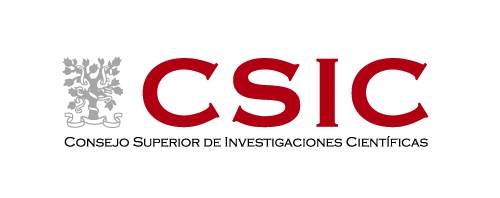Other Events
GlobalSpec: Sensors & Switches. October 19, 2011
Using Environmental Sensors
Scientific research carried out by ultrasonic and forest resources research groups (CSIC and CITA, respectively) demonstrated the possibility of using non-contact (air-coupled) ultrasonic spectroscopy (NCUS) to sense different properties of plant leaves in a fast and completely non-invasive way. How this rather novel technique works, and how it can be used for environmental applications are the main topics of this presentation.
The leaf properties that can be sensed are water content, water potential and variations in these parameters, the development stage of leaves and the influence of environmetal factors (light, watering, and presence of atmospheric pollutants) on plant development. This may have significant applications in watering management or monitoring of plant growth in agronomy. In addition, plants may act, in many different ways, a little like the miner’s canary: an early warning system alerting us to important changes in our environment.
This new technique is described in detail as are the technical advances that have made it possible. What makes NCUS different from conventional ultrasonic techniques is also explained. Other potential applications of NCUS, also of interest in the field of environmental science, are outlined: detection of fouling in filtration membranes and aerogels, sensing of very soft tissues, etc.
Key Take-Aways:Learn about the novel technique of non-contact (air-coupled) ultrasonic spectroscopy
Understand the difference between conventional ultrasonic techniques and non-contact ultrasonic spectroscopy
Discover how to use this technique to determine, in a fast, non-invasive and continuous way, the variations of water potential, water content and other properties of plant leaves
Learn other applications of this technique Speaker:
Tomás E. Gómez Alvarez-Arenas, Senior Researcher, Spanish Scientific Research Council
Razón y Fe: Revista Hispanoamericana de Cultura, 2010, vol. 261, num. 1336, pp. 119-126
La cumbre de Copenhague sobre el cambio climático
En Copenhague, capital de Dinamarca, se celebró la última (XV) Conferencia Internacional de la ONU sobre el Cambio Climático durante los días del 7 al 18 de diciembre de 2009. Hay varias razones que hacían que ésta no fuera una cumbre más de esta larga serie; entre ellas, el próximo final del período de tiempo de validez del protocolo de Kyoto, el cambio de postura de EE UU, las medidas concretas anunciadas por otros países previamente a la cumbre, la presencia de 192 países y de representantes del más alto nivel de la mayoría de ellos y el creciente consenso científico entorno a este tema.
Razón y Fe: Revista Hispanoamericana de Cultura, 2008, vol. 258, num. 1321, pp. 313-322
El nuevo gran acelerador de partículas europeo
CERN, Ginebra, nueve horas y veintiocho minutos del día 10 de septiembre: el nuevo y gigantesco acelerador de partículas europeo ha efectuado con éxito su puesta en marcha. Conocido como el Gran Colisionador de Hadrones (LHC), ha necesitado veinte años de trabajo, unos ocho mil millones de dólares de presupuesto y la confluencia de numerosos científicos e ingenieros altamente especializados. Más aún, ha necesitado de la fe incuestionable y la voluntad inquebrantable de unos cuantos en semejante proyecto y en lo que nos podía aportar.
Razón y Fe: Revista Hispanoamericana de Cultura, 2007, vol. 256, num. 1309, pp. 209-216
Biocombustibles,¿ oportunidad o amenaza?
Razón y Fe: Revista Hispanoamericana de Cultura, 2002, vol. 246, num. 1249, pp. 257-260
II Congreso Mundial de Bioética
Razón y Fe: Revista Hispanoamericana de Cultura, 2002, vol. 245, num. 1239, pp. 35-40
Semana de puertas abiertas en la ciencia madrileña
Razón y Fe: Revista Hispanoamericana de Cultura, 1999, vol. 239, num. 1203, pp. 75-80
La enseñanza en matemáticas. Divorcio ciencia-sociedad
Razón y Fe: Revista Hispanoamericana de Cultura, 1998, vol. 238, num. 1199, pp. 163-173
Doñana: lo que el agua se llevó



